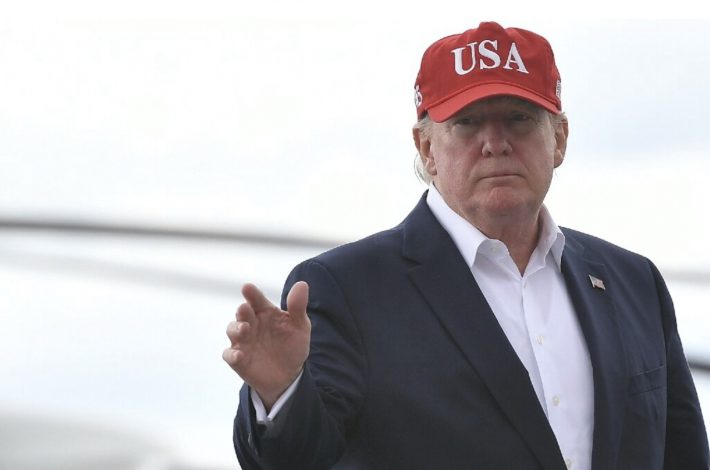New AP-NORC poll shows Trump’s approval on managing government plunges, with Republicans and independents losing patience amid the prolonged shutdown.
A new AP–NORC poll reveals a steep slide in U.S. President Donald Trump’s approval rating for government management, signaling growing unrest even within his conservative base.
The survey, conducted in early November, found that only 33% of Americans approve of how Trump is managing the federal government — a 10-point drop since March. The decline is sharpest among Republicans and independents, groups that once formed the backbone of his political resilience.
According to the data, Republican approval of Trump’s management fell from 81% to 68%, while among independents it plunged from 38% to 25%. The poll was conducted after Democrats’ off-year election gains but before Congress moved to end what has become the longest government shutdown in U.S. history.
The shutdown, now stretching beyond 40 days, has disrupted air traffic, halted food assistance, and delayed federal paychecks — realities that have begun to tarnish Trump’s image as a populist defender of “the forgotten American.”
Cracks Within the GOP Base
Republican discontent is now audible.
“It’s like having a petulant child in the White House with unmitigated power,” said Beverly Lucas, 78, a lifelong Republican from Florida. “When people are hungry, he had a party.”
The sentiment echoes a wider unease among conservative voters who supported Trump’s aggressive reforms but are alarmed by the human toll of political brinkmanship.
Yet the poll also shows Trump’s overall presidential approval holding steady at 36%, virtually unchanged since October. His ratings on immigration and the economy remain stable, suggesting that many Republicans distinguish between his policy direction and governing style.
“I have great confidence in Trump,” said Susan McDuffie, 74, a Republican retiree from Nevada. “I don’t have patience for Democrats and their excuses.”
Public Frustration Cuts Across Party Lines
For millions of Americans, the shutdown has become an emblem of Washington’s dysfunction rather than one party’s failure.
“Everybody is being stubborn,” said Nora Bailey, 33, an independent mother from Arkansas. “People like me are caught in the middle — I just want government to work.”
Bailey’s experience — delayed aid for her newborn and disabled parents due to the shutdown — mirrors a wider sense of exhaustion.
What Comes Next
Analysts warn that if the government reopens soon, Trump’s ratings could rebound, as they often have after political turbulence. Yet the current slide underscores the danger of sustained confrontations with tangible costs to ordinary citizens.
Even some of Trump’s most loyal supporters now hint at frustration with the White House’s combative tactics.
“We need to be addressing these conflicts like intelligent people — not thugs and bullies on the playground,” Lucas added.
For now, Trump’s approval on governing competence has hit a new low, even as his political base clings to him on ideological grounds. The data paints a paradox: a president whose movement remains strong — but whose governance is testing the loyalty of his own believers.





